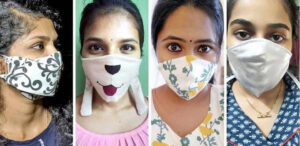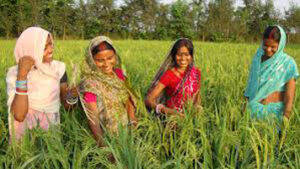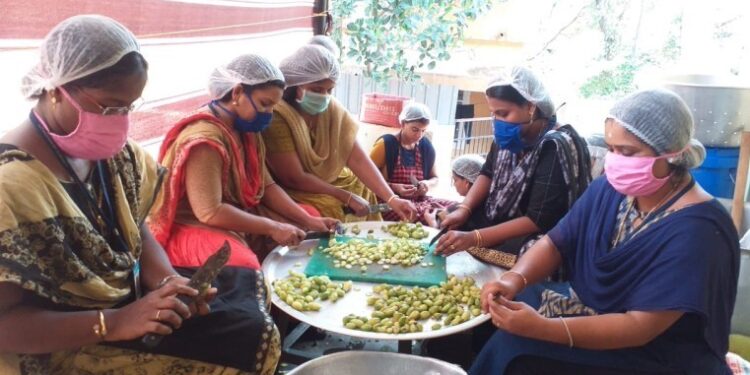The Self-Help Group movement in India has become a model for women empowerment since its inception in 1992. The phenomenal growth of the SHGs over the years is a testament to their success. In terms of numbers, the SHGs have grown from a mere 225 groups in 1992 to a consortium of 63 lakh SHGs comprising nearly 6.9 crore women today. These SHGs have played a crucial role in the social and economic empowerment among rural women and have fostered the spirit of entrepreneurship and financial independence. Apart from financial security, the SHGs have played a crucial role in instilling among rural women a social and political consciousness, particularly among the historically marginalized groups.
How impactful this resourceful and skilled community can be have been demonstrated in recent months in their contribution to the fight against COVID-19. The SHGs have taken up the tasks of tackling myriad challenges caused by the ongoing pandemic and with their collective efforts, have contributed to alleviating the sufferings of many in their communities.
Mass production of masks

SHGs have launched a number of initiatives at the local level since March this year. During the beginning of the pandemic, the Indian manufacturers were not able to meet the demand for masks. The SHGs stepped in to fill this demand. As per a report by the Ministry Of Rural Development, more than 132 lakh masks were produced by 14,522 SHGs involving 65,936 members in 399 districts (across 24 states) from March 15 to March 30. In April, 20,000 SHGs managed to produce more than 19 million masks across 27 states (which is in about 90% of India’s districts). By May, this increased to over two lakh women SHGs producing more than 10 crore masks. The masks produced by SHGs were distributed among ASHA workers, ANM and hospital workers and other frontline COVID warriors at free of cost.
Stitching PPE kits
Their efforts also included 1 lakh litres of sanitizer and 50,000 litres of handwash; with sanitizer production increasing to 3 lakh litres by May. To meet the demand for PPE kits, the SHGs swung into action. Over 4,000 women belonging to SHGs produced more than 2 lakh PPE kits across 12 states from March to May.
Kudumbashree feeds the hungry
SHGs played a key role in tackling the problems caused due to the restriction of mobility and the loss of livelihood by many after the lockdown. The Kudumbashree network of 4.4 million women across 3,00,000 SHGs in Kerala has been instrumental in running 1,300 community kitchens in their state’s panchayats and municipalities. Their efforts don’t stop with just feeding the stranded and the vulnerable; they also deliver food to the quarantined and the bedridden.
Awareness campaigns & floating supermarket
Kudumbshree has spearheaded the government’s ‘Break the Chain’ campaign by educating people on social distancing and washing of hands at regular intervals through posters, phone messages and weekly meetings. These women SHGs also started a floating supermarket (in a boat) for delivering essential supplies to the Kainakary residents in Alappuzha.
Jeevikas of Bihar rise to the occasion
The SHGs also were at the forefront of awareness campaigns on COVID. The Jeevikas of Bihar conducted door-to-door awareness drives about social distancing and sanitization amidst the pandemic. Jeevikas belonging to 1.4 lakh SHGs provided food supplies to the elderly and the quarantined. They used the Mobile-Vaani platform to make public voice messages on safety measures around COVID-19.

Through their vast network of WhatsApp groups, comprising 190,000 groups with 2.2 million members, the SHGs proactively worked towards countering misinformation about COVID.
Since the beginning of the pandemic, the SHGs have done phenomenal work in community engagement and support and have been instrumental in ensuring livelihood to the most marginalized groups. The work done by the SHGs during the pandemic is worthy of being a template for optimal community-led response in times of crisis.










